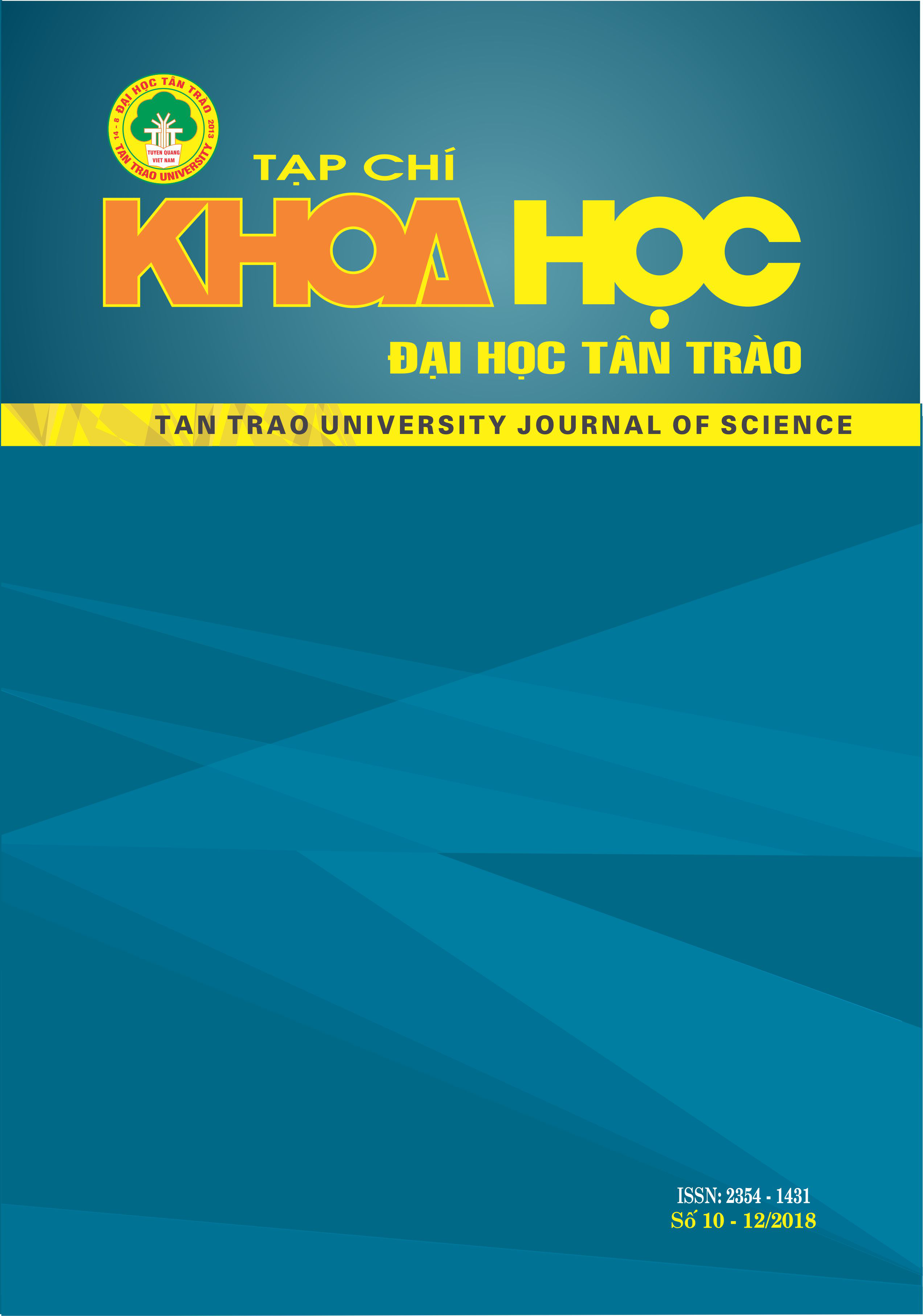Đổi mới phương pháp dạy - học môn Lý luận chính trị ở các trường đại học hiện nay
DOI:
https://doi.org/10.51453/2354-1431/2018/190Từ khóa:
Äổi má»›i; phÆ°Æ¡ng pháp dạyhá»c; lý luáºn chÃnh trị; tá»± há»c; há»c nhóm; há»c hiện trÆ°á»ngTóm tắt
Việc khắc phục những bất cập trong công tác giáo dục đào tạo để chuyển biến mạnh mẽ từ việc chủ yếu truyền thụ tri thức sang việc hình thành, củng cố phẩm chất, năng lực cho người học đáp ứng yêu cầu của nhiệm vụ xây dựng và bảo vệ Tổ Quốc Việt Nam là một đòi hỏi tất yếu đối với sự nghiệp giáo dục đào tạo hiện nay. Tình trạng ngại, kém hứng thú học tập môn Lý luận chính trị của sinh viên ở các trường đại học hiện nay đang diễn ra khá phổ biến. Để khắc phục tình trạng này, cả người học và người dạy đều phải cùng thay đổi nhiều mặt để xác định được phương pháp dạy - học phù hợp. Cần có sự đổi mới mạnh mẽ trong phương pháp dạy - học để chuyển từ mục tiêu truyền thụ tri thức là chủ yếu sang mục đích phát triển ở người học năng lực học tập chủ động và giải quyết vấn đề của thực tiễn. Bài viết này, đề cập đến một số vấn đề mà người dạy và người học cần thay đổi để xác định được tâm thế, phương pháp, hình thức dạy - học môn Lý luận chính trị đúng đắn, phù hợp trong giai đoạn hiện nay.
Tải xuống
Tài liệu tham khảo
1. Hồ Chí Minh (2011), Toàn tập, tập 5, Nxb. Chính trị Quốc gia - Sự thật, Hà Nội.
2. Hồ Chí Minh (1996), Toàn tập, tập 8, Nxb. Chính trị Quốc gia, Hà Nội.
3. Bộ giáo dục và đào tạo (2018), Giáo trình những nguyên lý cơ bản của chủ nghĩa Mác - Lênin (dành cho sinh viên đại học, cao đẳng khối không chuyên ngành nghĩa Mác- Lênin, tư tưởng Hồ Chí Minh), Xuất bản lần thứ 11, Nxb Chính trị quốc gia - Sự thật, Hà Nội.
4. Vũ Ngọc Am (2009), Một số vấn đề về phương pháp giảng dạy lý luận chính trị, Nxb Thông tấn, Hà Nội.
Tải xuống
Đã Xuất bản
Cách trích dẫn
Số
Chuyên mục
Giấy phép

Tác phẩm này được cấp phép theo Giấy phép Quốc tế Creative Commons Attribution-ShareAlike 4.0 .
Bài báo được xuất bản ở Tạp chí Khoa học Đại học Tân Trào được cấp phép theo giấy phép Ghi công - Chia sẻ tương tự 4.0 Quốc tế (CC BY-SA). Theo đó, các tác giả khác có thể sao chép, chuyển đổi hay phân phối lại các bài báo này với mục đích hợp pháp trên mọi phương tiện, với điều kiện họ trích dẫn tác giả, Tạp chí Khoa học Đại học Tân Trào và đường link đến bản quyền; nêu rõ các thay đổi đã thực hiện và các nghiên cứu đăng lại được tiến hành theo cùng một bản quyền.
Bản quyền bài báo thuộc về các tác giả, không hạn chế số lượng. Tạp chí Khoa học Tân Trào được cấp giấy phép không độc quyền để xuất bản bài báo với tư cách nhà xuất bản nguồn, kèm theo quyền thương mại để in các bài báo cung cấp cho các thư viện và cá nhân.
Mặc dù các điều khoản của giấy phép CC BY-SA không dành cho các tác giả (với tư cách là người giữ bản quyền của bài báo, họ không bị hạn chế về quyền hạn), khi gửi bài tới Tạp chí Khoa học Đại học Tân Trào, tác giả cần đáp ứng quyền của độc giả, và cần cấp quyền cho bên thứ 3 sử dụng bài báo của họ trong phạm vi của giấy phép.






